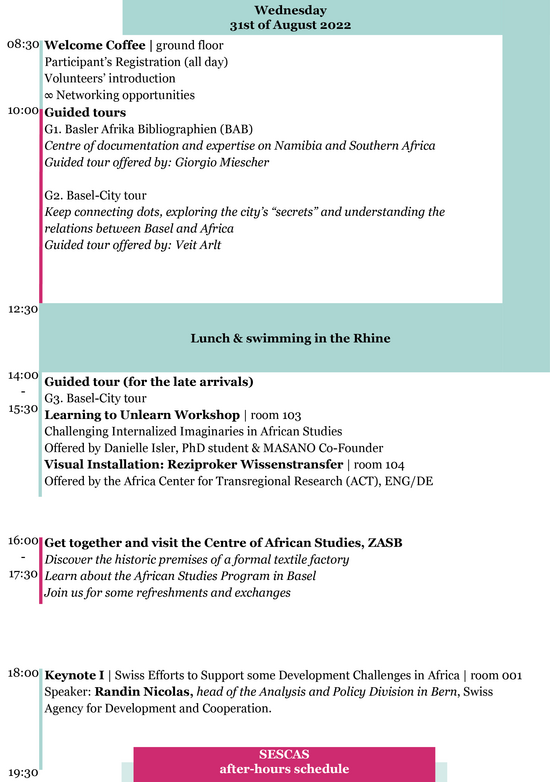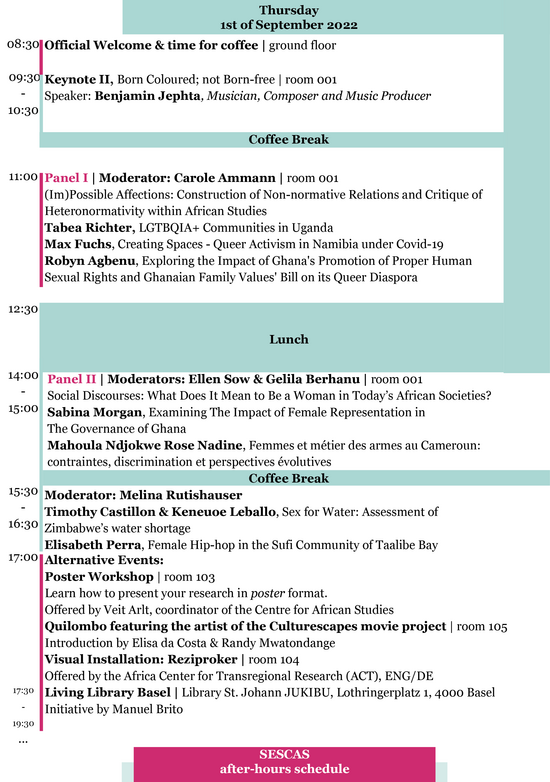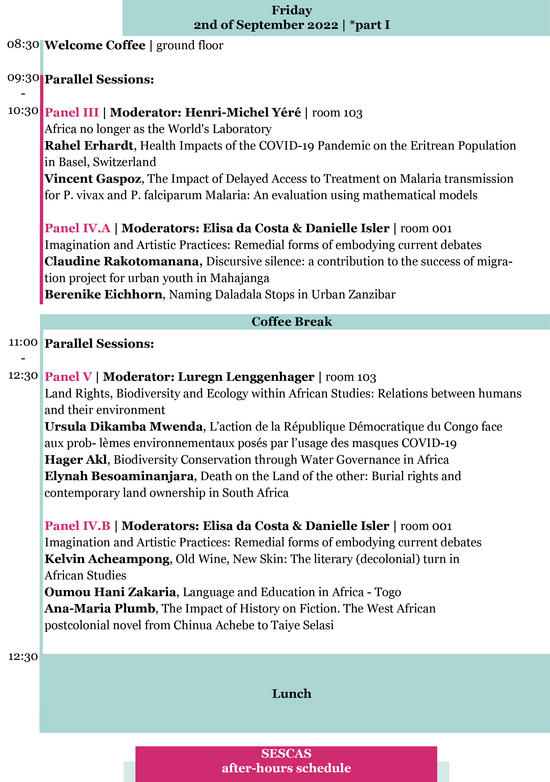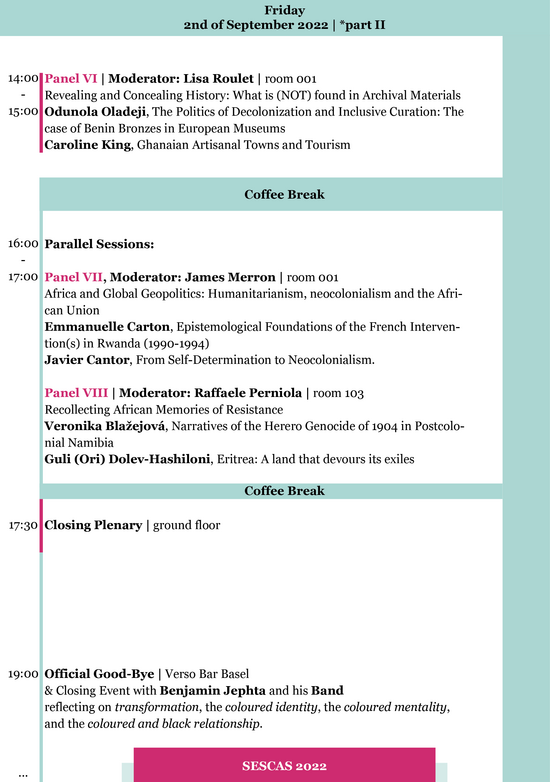SESCAS Program / Registration Open
The Program is now updated
Who are the Keynote Speakers
Speaker: Nicolas Randin, Swiss Agency for Development and Cooperation
Keynote Title: Swiss efforts to support some development challenges in Africa
Nicolas Randin joined the Swiss Agency for Development and Cooperation in 1999. He is currently heading the Analysis and Policy Division in Bern, in charge of the medium term strategy of the agency. He worked as a counsellor at the Permanent Mission of Switzerland to the United Nations in New York (2014-2018), as Country Director of the Swiss Agency for Development and Cooperation and in charge of consular agency in Burkina Faso (2012-2014) and in Niger (2010-2012), Deputy Head of the East Asia Division in Berne, Switzerland (2006-2010), Deputy Country Director in Mozambique (2002-2006) and Water advisor in Peru (1999-2002). He previously worked as a water researcher at the “Swiss Institute of Technology” (Ecole Polytechnique Fédérale de Lausanne, Switzerland, 1996-1999). He was posted in Mozambique, Angola and East Timor for the International Committee of the Red Cross (1993-1995) and in a private engineering consultant firm in Switzerland (1991-1992). He holds a Masters in Rural Engineering (EPFL) as well as a Masters in Hydrogeology (Neuchâtel).
Speaker: Benjamin Jephta, artist, musician, composer and producer
Keynote Title: Born Coloured; not Born-free
The South African bass player, Benjamin Jephta, graduated the jazz program at the University of Cape Town (2013) and the MA program at The Berklee Global Jazz Institute in Boston, USA. With his project called "Born Coloured; not Born-free, he is delving into the experience of being a so-called "Coloured" in post-Apartheid, domocratic South Africa.
"I dissect my experience and created music centred around important themes. These themes included ‘transformation’, ‘the coloured identity’, ‘the coloured and black relationship’ and ‘the coloured mentality’. My aim is to inspire and create a sense of hope, empowerment and unity in the South African experience, rather than alienating with a radical political approach. The compositions draws musically from traditional South African styles such as the Ghoema/Cape Jazz and Marabi music as well as modern African music idioms such as Gqom (a style of ‘house’ music), kwaito and hip-hop weaved with elements of Black American Music."




